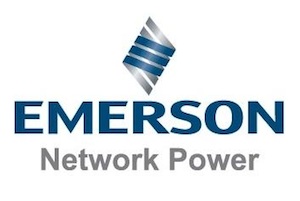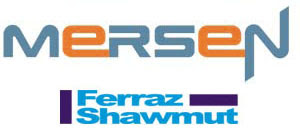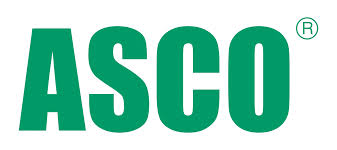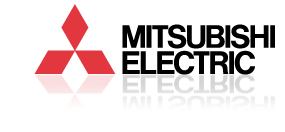News / Press Releases
April 5, 2018
Are all M/W/DBE Supplier Firms Treated the Same?

Are all M/W/DBE Supplier Firms Treated the Same?
By Lorraine D’Angelo, President, LDA Compliance Consulting, Inc., http://www.ldacomplianceconsulting.com, (914) 548-6369
It might surprise you to find that the answer to this question is, “No.” The rules for claiming participation are different depending on whether the firm is used as a subcontractor or subconsultant, material or equipment supplier (regular dealer, manufacturer, or broker) or trucker. It is important to recognize which category the firm falls under because the amount of participation that can be claimed for each is different and those differences can be significant when attempting to satisfy the project goals. In addition, agency rules complicate claiming credit for suppliers because agencies treat suppliers differently. Depending on which agency you are working for, a contractor may be able to claim 100% of the cost of the supplies, 25% if the supplier has a “certified broker” designation, only fees and commission, 60% under the DBE regulations if it meets the criteria, 0% under the NYC Regulations (Local Law 1), etc.
The Federal DBE regulations define a regular dealer as “an established, regular business that engages, as its principal business and under its own name, in the purchase and sale or lease of the supplies or products in question. Additionally, a regular dealer owns, operates, or maintains a store, warehouse, or other establishment in which the materials, supplies, articles or equipment of the general character described by the specifications and required under the contract are bought, kept in stock, and regularly sold or leased to the public in the usual course of business.” The commentary to the regulation goes on to state: ”a firm that supplies a product on an ad hoc basis to a few contractors with whom it has a special relationship, rather than to the general public as a whole, is not a regular dealer.” Packagers, brokers, manufacturers’ representatives, or other persons who arrange or expedite transactions are not regular dealers.
The Federal DBE regulations essentially leave it up to the contractor to determine whether a supply firm is a regular dealer or a broker on a contract-by-contract basis (In my opinion it is really an item-by-item basis, a daunting task). The distinction is significant because the amount that can be claimed for participation as a regular dealer is 60% of the cost of the materials vs. a broker where the fee/commission, typically 3-5%, is all that can be claimed. Regular dealers of bulk item supply (E.g., petroleum products, steel, cement, gravel, stone, or asphalt) have different qualifying rules, but limit the participation to 60% of the cost of the materials. The State regulation (Executive Law Article 15-A) provides little guidance about how to count suppliers and it can be up to 100% of the cost of the supplies but it is dependent upon the contract requirements. The rules for claiming material suppliers on a project funded through the NY State Revolving Loan Fund on an EPA Project can be 100% of the cost of the material supply up to 25% of the total contract value. The NY City Regulations (Local Law 1) do not permit counting material suppliers in the construction setting. For NYC projects, 0% is permitted to be counted for attainment.
Under any of the applicable regulations, the participating firm must still perform a “commercially useful function” (“CUF”). If you are using material supply to satisfy a contract goal, it is imperative that you understand the particular rule that applies to your contract (usually dependent on the source of funding). Assuming a supplier is performing a CUF, the chart attempts to summarize how attainment participation may be claimed for suppliers:
| Regulation | Supplier Credit |
| DBE, USDOT, 49 CFR Part 26.55 | 60% for regular dealers, fees or commissions for brokers (typically 3-5%), 100% for manufacturers or fabricators |
| NYS, M/WBE Article 15A | 100% or as per contract |
| NYC M/WBE (Local Law 1) | 0% |
| State University Construction Fund (Based upon contract language) | 25%, if firm has the designation “certified broker” |
| Dormitory Authority of the State of New York (Based upon Contract Language) | 25%, if firm has the designation “certified broker” |
| Department of Environmental Protection Projects (funded through the NYS Revolving Loan Fund), 33 CFR Part 103 | 100% of the cost of the materials, up to 25% of the total cost of the construction |
A recent case highlights the importance of getting it right. On August 14, 2015, The USDOT Office of the Inspector General reported that HD Waterworks, an Atlanta based company described as the “nation’s largest supplier of water, sewer, fire protection and storm drain products” paid $4.9 Million dollars to settle civil allegations made under the False Claims Act that it used a DBE as a “pass through.” According to the USDOT-IG, contractors reported that they were using American Indian Builders & Suppliers, a now defunct DBE, for supply. However, it appears, based on invoices, that HD Waterworks was supplying the materials to the contractors, who would then pass its invoices—with a mark-up—through American Indian Builders & Suppliers. This settlement was reported to be the largest of its kind involving a third party supplier in a DBE fraud case.
Note that the chart is intended as an example. Specific contract provisions or regulations may impact how attainment may be claimed. If you are in doubt, you should seek assistance.
Lorraine D’Angelo
(914)548-6369
 240 Washington St. Mt. Vernon, NY 10553
240 Washington St. Mt. Vernon, NY 10553  914-948-3231
914-948-3231





























